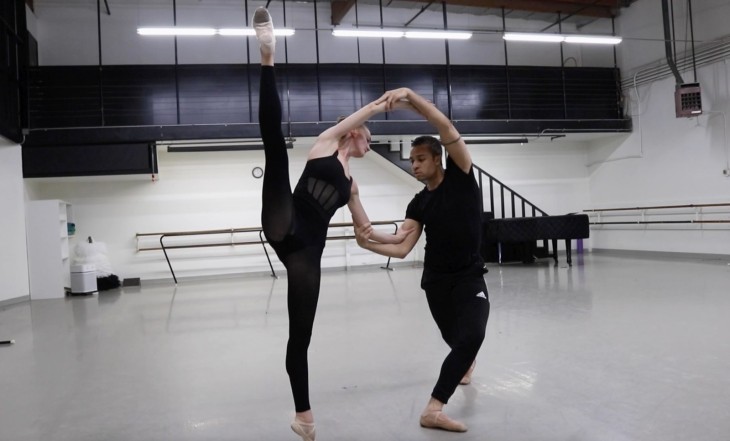ADAM FRIEDMAN
SPECIAL TO THE MIRROR
Aging can be defined as a functional decline over time, and this process is happening at this very moment for each and every one of us, to some in a kinder manner than to others. Which category are you in?
If you are confident that your lifestyle is working toward maintaining or improving your physiological functions, then keep up the great work! If you are not sure, then it might be a sign that your aging needs a “self-intervention” as an act of self-kindness and self-preservation.
It’s a fact that the process of aging, from early adulthood, can create a lower quality of just about every physiological function that we may know of, and some we may not be aware of. To name a few, these changes can include: neuro-muscular functions such as coordination, strength, power, and flexibility; metabolic functions such as digestion and respiration for conversion to energy; and cognitive functions such as memory and problem solving.
Many of these changes may happen too subtly to notice, while others are immediately alarming. For example, our cognitive skills may diminish slowly, while we definitely take notice of how tough it can be to get out of bed in the morning.
Who says this has to be our fate? Wouldn’t it be great to be able to jump out of bed with ease to take on the day with a sense of empowerment instead of defeat?
There is no need to submit to this process without a fight. We have the power and the ability to take many very effective steps to stave off the regression of aging.
There are a number of contributing factors that a effect the rate at which certain functions are altered by aging. The most common contributors that affect the outcome of this decline are genetics, chronological aging, environmental factors, lifestyle habits, and stress. We can’t choose our parents and we can’t slow down time, so we are locked in to our genetics, and our physiological age. However, all else is within our control to choose either a self-serving direction or a self-sabotaging direction.
We owe it to ourselves, our family, and friends to become proactive in learning and applying effective strategies to reduce that rate. This way, our quality of life will have the staying power to live the way we choose instead of being limited unnecessarily.
Knowing that the inevitable aging process will lead to some undesirable changes, why wouldn’t we choose to lessen the blow as much as possible? We are intelligent human beings, and are fully aware that our past, present, and future actions and/or inactions affect our aging.
This is the age of information, and we are one Google search away from discovering page after page of a wealth of health knowledge. So we can no longer use the excuse that “nobody told me” what qualifies as preventative or high risk behavior. If you prefer to remain in the mindset that “ignorance is bliss” while you go through life, you are rolling the dice with your health and longevity.
One of my favorite quotes is that “A chain is only as strong as its weakest link.” Regarding aging, this can point to the one thing that we are either doing or not doing that may make the biggest difference for our outcome.
For example: you could be eating an all-organic and well-balanced diet, exercising regularly, but you smoke a pack a day, or you are just highly stressed. You could be eating healthfully, and have low stress, but rarely exercise. Just one of these elements could play a major role in a faster decline in your health than is necessary.
That leads to the next question that you might consider spending some time with. Why is it important to you to maintain a high quality life? Whatever the answer, wouldn’t it be necessary to have a lifestyle that serves the purpose of supporting your reason?
This article is about supporting you in taking ownership of your aging process instead of playing victim to it. The fact is that there are many reasons why we may no longer feel in control of what happens. We can find all kinds of excuses not to take it on; We’re too busy, and don’t have the time. Some of us may be more honest with ourselves about it when we say it’s too much work, and we just don’t feel like it. If any one of those reasons is your truth, than it may behoove you to keep your expectations in check as to what the future holds.
How much do you value independence, quality time spent with loved ones, and/or doing the things that you love that require a certain level of functional capacity on your part? Many of us have grown an attachment to what we do, and how we do things, despite the long term effects. If what we did and how we did it created an immediate negative effect, we probably wouldn’t do it again. Like when we get burned by something hot. It sends immediate feedback to the wiring in our brain to be more careful in the future.
The future is now, with regard to aging. What you do today is contributing to your future whether you want to believe it or not. One good decision most often leads to another, whereas one bad decision can easily throw us off track if we let it. Our current strategies in life have an accumulating effect in our bodies. It’s better not to resist this fact. Anything from how we stand, walk, eat, sleep, or work, etc. can lead to either better function or less function. This is why having a holistic and a “use it or lose it” approach to our health can pay huge dividends in our overall quality of life.
Here are some aging intervention strategies:
1. Maintain a consistent health structure that includes:
• Getting sufficient sleep, which is when you are able to get into a deep sleep and stay asleep throughout the duration of the night, and wake up feeling fully rested (on average between seven to eight hours).
• Exercising a minimum of three to four days/week for at least 60 minutes consisting of a combination of: resistance training to build strength, power, and postural balance; cardiovascular training to build stamina and boost metabolism; and stretching to alleviate tension in muscles, postural balance, and for injury prevention.
• Proper nutrition to stabilize blood sugar through the correct ratio of protein, carbohydrates, and fat in each meal or snack; calories per meal or snack; and eating every three to four hours from the first hour of waking up until a couple hours before bedtime.
• Adequate water – based on the aforementioned recommended eating interval, have 8 oz. of water with each meal or snack, and 8 oz. in between.
2. Reduce stress by creating a healthy outlet and taking time for you, by implementing mindful activities such as meditation, yoga, and/or hobbies like gardening, puzzles, arts and crafts, or playing a musical instrument.
3. Schedule regular social interaction by spending time with loved ones; join groups with common interests, and/or volunteer for a philanthropic cause.
4. Incorporate at least one daily cognitive activity to keep your mind stimulated by learning new things like languages, new skills, and play puzzle-like games.
Understanding this balance of strategies and applying it to our life can lead to healthy longevity. I encourage you to seize the day, and make the most of what you can do to enrich your life.
Adam Friedman, CSCS, CN, CMT is a Kinesiologist, Certified Strength & Conditioning Specialist, Certified Nutritionist, and Certified Massage Technician. He is the founder of Advanced Athletics, Inc. located right next door to the world famous Gold’s Gym in Venice, on the corner of Sunset Ave, and Hampton Drive, one block east of Main Street. To schedule a complimentary assessment please call 310.396.2100 or email Adam at info@advancedathletics.com. Otherwise, to learn more, visit www.advancedathletics.com.























